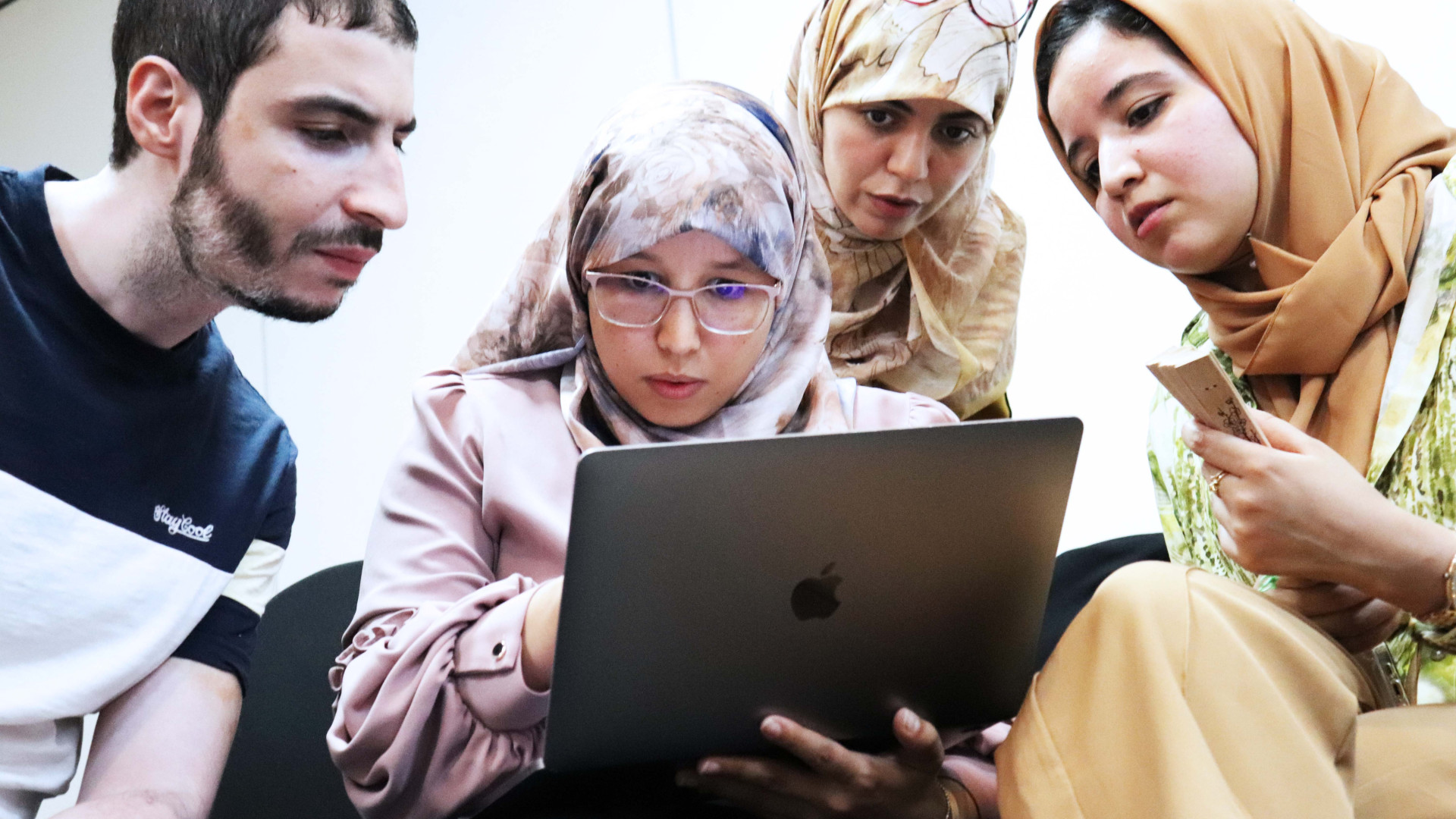
As part of the e-TAMKEEN programme, the second IDARATHON was organised in 2022. This competition was specifically designed to encourage Moroccan civil servants to innovate by designing digital solutions capable of meeting the challenges of public administration.
During this edition, the competition was open to all Moroccan ministries, without exception. In addition, particular emphasis was placed on the implementation of the three winning projects. To achieve this, two major initiatives were devised:
1. A comprehensive support system for teams, from ideation to technical development;
2. The introduction of key figures: the "Challenge Owners". These are influential individuals within the various ministries, capable of guiding projects thanks to their expertise and hierarchical position, and promoting them within their respective administrations.
Two representatives from each of the twelve teams undertook to defend their ideas and prototypes in front of a Moroccan-Belgian jury made up of seven digital and innovation experts.
At the end of the competition, three teams stood out and were rewardedduring a ceremony presided over by Sarah Lamrani, Secretary General of the Ministry of Digital Transition and Administrative Reform, and Jean Van Wetter, General Director of Enabel.
The team “SEER” was named the overall winner of this second edition of IDARATHON. They imagined a multilingual mobile application based on voice commands, facilitating access to administrative services for citizens affected by the digital divide.
The second prize was awarded to the Agri-Innov'Makers team, who came up with an interactive digital solution enabling qualified agricultural workers to consult job offers and submit their applications.
Finally, the third prize went to the OTOTI9A, which offered an online platform bringing together technical and administrative information on second-hand vehicles for sale in Morocco.
These participants, trained in a wide range of methods and tools, has become ambassadors for public innovation within their respective departments. They were thus able to develop a mentality of change and improvement, helping to provide an optimum service to citizens.